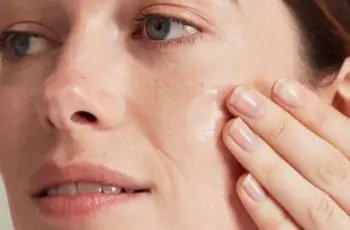
Can You Reverse Aging? 8 Ways to Reduce Premature Aging
Learning how to reverse aging may seem like something out of a fairy tale. Getting older is a fact of life, but there are ways to slow down the visible signs of aging on your skin that can actually make you look older than you are if you develop poor skin care habits, such as forgetting to apply sunscreen or using the wrong products, or signs of wrinkles, hyperpigmentation, dry skin, and more.
Read on to learn why premature aging occurs, what lifestyle habits accelerate it, and how to prevent wrinkles with non-invasive products.
What is aging?
As we age, we experience a variety of physiological changes due to both intrinsic and extrinsic factors. Intrinsic aging refers to the natural biological process of aging, which is determined by a person’s genetics. Extrinsic aging is affected by external factors such as air pollution, smoking, alcohol consumption, poor diet, and sun exposure.
While some signs of aging, such as wrinkles and gray hair, are more obvious because we can see them, aging also occurs at the cellular level. Cells are the building blocks of our tissues, and over time they grow larger and are no longer able to divide and reproduce. 1 In addition, waste products accumulate in tissues, causing them to become harder. It also becomes more difficult for oxygen and other nutrients to help cells and tissues regenerate. At the same time, the production of collagen and elastin slows down, causing the skin to become thinner, dryer, and less elastic. The distribution of fat also changes: less fat in the face, hands, and feet, making these areas more transparent, while fat increases in the thighs, abdomen, and waist. 2
At what age do symptoms of aging begin to appear?
According to some dermatologists, estheticians, and other skin care experts, the aging process seems to begin around 29.3 years old, when collagen fibers begin to lose their elasticity. You may notice fine lines, sun spots, dry skin, sagging skin, and hair loss. Although aging is inevitable, certain factors such as diet, sun protection, and daily skin care can speed up or slow down the process.
Is it possible to reverse the aging process?
Although the Fountain of Youth is a mysterious place, some scientists believe that it is possible to reverse the aging process to some extent. According to a study published in Cell4, researchers were able to reverse the aging process in mice by reversing changes in gene activity. By tweaking a gene that turns adult cells back into embryonic cells, researchers were able to extend the lifespan of mice with accelerated aging and successfully boost recovery from damage in middle-aged mice.
While the study was promising, it had one major drawback: When the researchers continued to treat the mice, some of them developed tumors and died within a week. Until more research is done, especially in humans, most experts agree that it would be easier and safer to find ways to slow the aging process than to try to reverse it completely.
How to Slow Down Premature Aging
We all age, but premature aging means it happens too quickly. Many of the factors that contribute to premature aging are preventable, from a poor diet to not drinking enough water. By implementing the following 8 healthy lifestyle factors, you can help stop and prevent further damage from premature skin aging.
1. Eat a Healthy Diet
A varied, nutritious diet is one of the most important things we can do for our health. If you want to combat dull complexion and prevent fine lines, your anti-aging diet should include plenty of antioxidant-rich fruits and vegetables, researchers say. 5 Try adding watercress (which helps oxygenate the skin), red bell peppers, which can prevent skin damage, and broccoli, an anti-inflammatory vegetable rich in vitamin C. Other important anti-aging nutrients include:
Leafy greens such as spinach and kale
Nuts, especially almonds and walnuts
Avocados
Sweet potatoes
Pomegranates
The Mediterranean diet has also been shown to slow the aging process at a cellular level by lengthening telomeres, the complex structures at the ends of chromosomes. 6 This diet features a high intake of vegetables, fruits, and legumes, olive oil as the main source of fat, fish as the main source of animal protein, and a variety of whole grains, nuts, and seeds.
2. Avoid smoking
You may already know that smoking is bad for your heart and lungs, but it’s just as bad for your skin. Studies call smoking an aging accelerator, both directly triggering an inflammatory response and indirectly increasing the likelihood of developing disease, for which smoking is a recognized risk factor. 7 Smoking is toxic to cells and causes biophysical changes in the skin, especially in terms of thickness and density. Smokers have been shown to have fewer collagen and elastin fibers in their dermis, causing the skin to sag, become hard, and lack elasticity.
Night Renewal Cream
Night Renewal Cream
• Contains 2% Granactive Retinoid
• Anti-aging protection, moisturizing
• Improves fine lines and skin texture
Regular Price $45
Add to Cart
3. Use Retinoids
Retinoids, like those in the Foundation Skin Care Night Cream, have been shown to improve skin tone by reducing fine lines and wrinkles by increasing collagen production and stimulating the creation of new blood vessels in the skin. There is also evidence that regular use of tretinoin can help fade age spots and soften rough patches of skin. 8 However, it is important to be patient to see results, which may take three months or longer to become apparent. Retinoids should always be used with a broad-spectrum mineral sunscreen to protect your skin from UV damage, as the product can make your skin more sensitive to the sun.
4. Exercise Regularly
Regular exercise helps keep your skin young and healthy by increasing circulation, supplying oxygen and nutrients to skin cells and helping to remove toxins. There is also evidence that exercise can stop the aging process of chromosomes by lengthening telomeres (like the Mediterranean diet mentioned above). 9 A Canadian study also found that people over 40 who exercised regularly had thicker skin with a similar composition to those in their 20s and 30s. 10
5. Daily SPF and Moisturizer
Spending too many days in the sun without sun protection can damage your skin, exacerbate signs of aging, and put you at risk for skin cancer. You should always use a broad-spectrum, water-resistant sunscreen with an SPF of 30 or higher (we recommend an SPF of 50). Broad-spectrum sunscreens protect against both UVA and UVB rays, both of which are equally harmful to the skin.
Sun damage also breaks down the natural hyaluronic acid in the skin that binds water, reducing the skin’s ability to retain moisture. That’s why using a moisturizer with hyaluronic acid morning and night should be an important part of your skin care routine. You may also consider taking supplements that can further protect your skin from sun damage, such as Foundation Skincare Spectrum, which protects against sun damage and skin cancer and supports skin renewal. Foundation Skincare Pigmentation Defense is another nutritional supplement that contains antioxidants, vitamins, and herbs to improve visible signs of skin discoloration and hyperpigmentation.
If you’ve noticed signs of sunspots or hyperpigmentation, consider adding Foundation Skincare Azelaic Acid 14% to your routine. This daily foundation reduces skin inflammation and redness, and lightens the look of sun damage, age spots, and other forms of hyperpigmentation. Foundation Skincare Azelaic Acid has the highest over-the-counter azelaic acid concentration, yet is gentle enough not to dry out or irritate your skin.
6. Prioritize Anti-Aging Skincare
In addition to a strong sunscreen and daily moisturizer, you should consider other anti-aging skincare products, including niacinamide, which enhances DNA repair, improves photodamaged skin, and boosts collagen production to reduce the appearance of fine lines and wrinkles. Foundation Skincare Niacinamide Lotion 10% also contains Hyaluronic Acid to hydrate the skin and prevent irritation. It has integrated anti-inflammatory properties that protect and heal the skin while minimizing the appearance of pores and increasing ceramide production.
Another superstar ingredient is Vitamin C, an antioxidant that protects skin cells from harmful free radicals while reducing redness and inflammation. Foundation Skincare Vitamin C 20% combines Vitamin C with a hydrating base to hydrate, brighten and protect your skin without drying or irritating it, while boosting collagen production and reducing the appearance of fine lines and wrinkles.
Foundation Skincare Firming Neck Cream is another product that provides long-term anti-aging benefits with regular use. Designed to care for the delicate skin on the neck and décolleté, this neck cream is enriched with advanced peptide growth factors and natural moisturizers to lift, strengthen, hydrate and firm sagging or sagging skin.
7. Retain Moisture
Boosting your skin’s moisture levels is another way to keep your skin healthy and rejuvenated. Drinking the recommended 6-8 glasses of water per day improves blood circulation to your skin and body, providing your cells and tissues with the nutrients they need since they are mostly made up of water. 11 You can support your efforts by eating water-rich foods like cucumbers, watermelon and zucchini in your diet. Also make sure to limit alcohol and sugary foods as they can lead to dehydration and inflammation.
8. Cleanse Gently
If you want to slow the signs of aging, you should do it gently. Using harsh exfoliants or scrubbing too often can damage the skin and lead to chronic inflammation, dehydration, and ultimately accelerate the aging process. Instead, cleanse your skin gently and follow up with a skincare routine that keeps your skin healthy from the inside out.
Key Insights
It’s never too late to start taking care of your skin. Press the pause button on aging by investing in ingredients that are clinically proven to deliver long-term success, rather than over-hyped fads that promise quick results without evidence. For more on keeping your skin and hair healthy, visit FS Journal.


